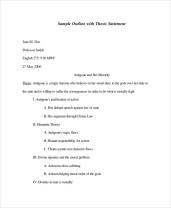How to become a successful writer?
Becoming a successful writer involves a combination of honing your writing skills, developing a unique voice, building a strong work ethic, and navigating the world of publishing. Here are some pathways to success for aspiring writers:
Read Extensively:
- Read widely and across different genres. Exposure to diverse writing styles, perspectives, and storytelling techniques will enrich your own writing.
Write Regularly:
- Establish a consistent writing routine. Regular practice is crucial for improvement. Set aside dedicated time each day or week to focus on your writing projects.
Set Clear Goals:
- Define your writing goals, whether they involve completing a novel, publishing short stories, or building a successful blog. Having clear goals provides direction and motivation.
Edit and Revise:
- Develop strong editing and revising skills. Your first draft is just the beginning; refining your work through multiple drafts is essential for achieving polished, high-quality writing.
Seek Feedback:
- Share your work with trusted peers, writing groups, or mentors. Constructive feedback can offer valuable insights and help you identify areas for improvement.
Embrace Rejection:
- Rejections are a common part of a writer's journey. Use rejection as an opportunity to learn, grow, and persist. Many successful writers faced numerous rejections before achieving success.
Build a Writing Community:
- Connect with other writers, either in person or online. Building a supportive writing community can provide encouragement, advice, and networking opportunities.
Read about Writing Craft:
- Invest time in learning about the craft of writing. Books, articles, and online resources on writing techniques, storytelling, and style can enhance your skills.
Attend Writing Workshops and Conferences:
- Participate in writing workshops and attend conferences. These events offer opportunities to learn from experienced writers, gain insights into the industry, and make valuable connections.
Develop a Unique Voice:
- Cultivate your unique writing voice. Your voice is your signature style, and it sets you apart from other writers. Experiment with different tones and styles until you find what feels authentic to you.
Create an Online Presence:
- Establish an online presence through a blog, website, or social media. Share your writing, engage with readers, and network with other writers. An online platform can also be a valuable tool for attracting literary agents and publishers.
Submit Your Work:
- Submit your work to literary magazines, contests, or publishers. Be persistent and explore different avenues for getting your work published.
Explore Self-Publishing:
- Consider self-publishing if traditional publishing routes prove challenging. Many successful authors have found success by independently publishing their work.
Continue Learning:
- Stay curious and continue learning throughout your writing journey. Attend workshops, take writing courses, and stay informed about industry trends.
Be Patient and Persistent:
- Success in writing often takes time. Stay patient and persistent, and don't be discouraged by setbacks. Keep refining your craft and adapting to the evolving landscape of the publishing industry.
Remember that success in writing is subjective and can take different forms. Whether your goal is to become a bestselling author, publish a collection of poetry, or simply share your stories with a specific audience, the key is to remain committed to your writing goals and continuously strive for improvement.
What habits and practices contribute to becoming a successful writer?
Becoming a successful writer requires dedication, talent, and a willingness to constantly learn and improve. However, certain habits and practices can significantly contribute to achieving your writing goals. Here are some key habits and practices that successful writers often possess:
Developing a Consistent Writing Habit:
- Write regularly: Set aside dedicated time each day or week for writing, even if it's just a short period. This helps build discipline, improve stamina, and develop a consistent flow.
- Establish a writing routine: Choose a time and location that works best for you and stick to it. Creating a routine helps you get into the writing zone and maximize your productivity.
- Experiment with different writing formats: Explore writing in various genres, styles, and formats to discover your strengths and preferences, keeping your writing fresh and engaging.
Reading Extensively and Actively:
- Read widely and diversely: Immerse yourself in different forms of writing, including novels, short stories, poetry, articles, and essays. This exposes you to various writing styles, vocabulary, and storytelling techniques.
- Read actively and critically: Don't just passively consume information. Analyze the text, pay attention to sentence structure, vocabulary usage, and how the writer conveys their message.
- Take notes and reflect: While reading, jot down key points, interesting phrases, or writing techniques that inspire you. Reflect on the author's choices and analyze how they achieve their goals.
Building Your Skills and Knowledge:
- Practice specific writing skills: Focus on areas like grammar, punctuation, vocabulary building, and storytelling techniques. Utilize online resources, writing exercises, or courses to strengthen your weaknesses.
- Learn from other writers: Attend workshops, join online communities, and read books and articles on writing craft. Observing other successful writers and their approaches can be immensely valuable.
- Seek feedback and guidance: Share your work with trusted friends, writing groups, or beta readers. Constructive feedback helps you identify areas for improvement and gain different perspectives on your writing.
Nurturing Creativity and Inspiration:
- Read outside your comfort zone: Explore diverse genres and authors outside your usual preferences to broaden your perspective and discover new writing styles.
- Keep a journal: Journaling helps you explore your thoughts and ideas freely, develop your writing voice, and capture spontaneous inspiration.
- Engage in activities that stimulate creativity: Immerse yourself in art, music, nature, or other activities that spark your imagination and inspire new ideas for your writing.
Developing a Growth Mindset:
- Embrace learning and challenges: Don't be afraid to experiment, take risks, and learn from your mistakes. Growth mindset fosters a love of learning and helps you overcome setbacks.
- Be resilient and persistent: Writing success often takes time and effort. Be prepared to face rejections, criticism, and discouragement, and remain persistent in pursuing your goals.
- Celebrate your progress: Acknowledge your achievements, no matter how small, to stay motivated and maintain a positive attitude towards your writing journey.
Building a Network and Community:
- Connect with other writers: Participate in online forums, writing groups, workshops, or conferences to connect with other writers, share experiences, and offer mutual support.
- Engage with readers and fans: Build a platform for your work, interact with readers, and consider hosting events or online sessions to connect with your audience.
- Seek mentorship: If possible, find a mentor or writing coach who can offer guidance, support, and valuable insights from their own experience.
Remember, success in writing is a journey, not a destination. By consistently practicing these habits, actively learning, and staying motivated, you can significantly increase your chances of achieving your writing goals and fulfilling your creative aspirations.













